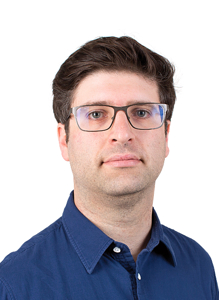
Shaun Walker
The Guardian
No other journalist has reported on the Ukraine war with such authority or humanity, his beautiful writing effortlessly transporting the reader to the villages and towns that bore the brunt of Putin’s invasion. With 15 years of experience covering Ukraine and Russia, Walker has been ideally placed to tell the stories of the voiceless civilians who became the innocent casualties of war. Walker was in Kyiv in February covering the final weeks of peace, when most Ukrainians simply did not believe a full-scale war was possible, and he stayed in the capital after life was turned upside-down by the terrifying and unpredictable Russian assault. The Russian withdrawal from the areas around Kyiv at the end of March was greeted with relief, but also revealed a story of systematic and appalling violence. Two pieces were reported in the immediate aftermath of this Russian retreat. While Bucha became the symbol of the occupation, there were many other places east of Kyiv that had been occupied and were harder to get to, and Walker wanted to see if there had been similar atrocities there. It was a difficult reporting environment, because people were traumatised and confused having just emerged from weeks in their basements with limited knowledge of events even a street or two away from them. Walker was soon finding evidence of horrible crimes. In the villages of Novyi and Staryi Bykiv, with a combined population of just 2,000 people, he collected direct testimony of the executions of nine people. In Trostianets, he met a woman whose husband had been kidnapped, tortured and executed, and many more whose homes and businesses had been destroyed or looted. As well as the evidence of crimes, there was plenty of telling evidence of how the Russian soldiers had lived and operated. Walker sifted through their bases, picking up their reading materials, looking at their recently extinguished cigarette butts still perched on ashtrays. The messages they had left behind on the school blackboards in Novyi Bykiv, and the colourful children's drawings they had taped to the walls in their makeshift operating theatre in Trostianets train station, were reminders that they were human beings too. Walker spent years based in Moscow, covering Vladimir Putin's increasing politicisation of history, so it was particularly chilling for him to see how the gruesome results of these years of propaganda had played out in Ukrainian towns and villages. Some of the most awful crimes happened in places it was impossible to reach for journalists not working for Russian state media. The most notable was Mariupol, where Walker powerfully pieced together what had happened through open source evidence and interviews with those who had fled.